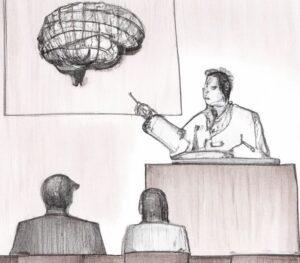In the intricate landscape of personal injury law, representing victims of Traumatic Brain Injury (TBI) presents unique challenges and demands a specialized approach. This article aims to elucidate traumatic brain injury settlement strategies you can employ to navigate these complexities effectively and secure the best settlements for their clients. Emphasis is placed on comprehensive case preparation, leveraging expert testimony, mastering negotiation tactics, and maintaining a strong, empathetic connection with clients.
Comprehending TBI: A Crucial Starting Point
Firstly, a deep understanding of TBI is essential. These injuries vary widely, from mild concussions to severe brain damage, each with different symptoms and long-term effects. Lawyers must use the latest medical knowledge to represent these cases accurately. Consequently, this understanding enhances their ability to empathize with the victims, a critical aspect of client representation. Lawyers specializing in brain injury cases are especially well-equipped with the knowledge to handle a TBI case properly. In addition, they will have contacts who specialize in particular areas of medicine and local and state laws when assistance is required.
Case Preparation: Laying a Solid Foundation
Moreover, thorough case preparation is the bedrock of successful traumatic brain injury settlement strategies. This step involves diligently gathering all pertinent information, including medical records, accident reports, and eyewitness statements. Subsequently, constructing a detailed timeline of the injury and its ramifications is crucial for a comprehensive claim. Thorough preparation not only strengthens the legal argument but also aids in accurately quantifying the damages for the negotiation process. Lawyers must be capable and willing to invest the time and resources to achieve the best result.
Expert Testimony: Enriching the Case
Furthermore, expert testimony is indispensable in TBI cases. Collaborating with medical professionals, rehabilitation experts, and economic analysts provides a multifaceted view of the victim’s situation. These experts offer invaluable insights into the victim’s medical prognosis and the economic impact of the injury. Their objective evaluations significantly bolster the case in settlement discussions. Expert testimony has the potential to produce a faster and bigger settlement as the defense may be unwilling to risk a trial knowing you have credible experts on your side.
Negotiation: A Skillful Balancing Act
Additionally, effective negotiation is a critical skill in achieving favorable settlements. Lawyers must be adept at presenting facts and expert opinions and at countering the opposition’s strategies. Significantly, conveying the emotional and psychological toll on the victim can powerfully influence the negotiation outcome.
Client Empathy: A Cornerstone of Representation
Importantly, maintaining empathy with clients is fundamental. Establishing a relationship built on trust and understanding is essential for effective representation. Regular, clear communication helps comprehensively understand the client’s needs and expectations. An empathetic approach strengthens the attorney-client bond and enables lawyers to advocate for their client’s interests more accurately.
Conclusion
In conclusion, securing optimal settlements in TBI cases requires a multi-dimensional approach. Lawyers must combine legal acumen with a thorough understanding of TBI, effective collaboration with experts, skilled negotiation, and a deep sense of empathy towards their clients. By adopting these strategies, legal professionals can significantly enhance their advocacy for TBI victims, ensuring they receive the rightful compensation for their injuries and the associated life changes.






